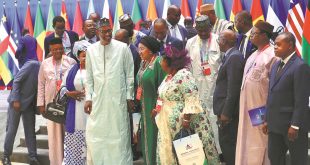Published:May 27,2022
By Benyamin Poghosyan

Villagers pick pomegranates in Qira town of Qira county in Hotan prefecture, Northwest China’s Xinjiang Uygur autonomous region, on Oct 1, 2021. [Photo/Xinhua]
Since Feb 24, the world’s attention has been focused on the Russia-Ukraine conflict and its negative implications on the world, including rising commodity and food prices, which have made millions of more people in less-developed countries vulnerable to hunger.
Given this fact, major powers should seek compromise-based solutions and take steps toward preserving (or restoring) peace instead of stoking conflicts. Also, since Europe is facing its biggest crisis since the end of World War II, they should make efforts to secure stability in other regions, including the world’s most dynamic region, the Asia-Pacific.
But, unfortunately, in recent years we have seen some countries trying to militarize the Asia-Pacific. The establishment of the new military alliances, such as the AUKUS(among Australia, the United Kingdom and the United States) and some leaders’ remarks about NATO’s global role and the transatlantic military alliance’s eagerness to flex its muscles in the Asia-Pacific are worrying signs. Indeed, major powers’ actions to fulfill their murky geopolitical goals are pushing the region toward a dangerous path.
The situation in the Xinjiang Uygur autonomous region is another example of how geopolitics has become the main driving force trumpeting factors such as stability, security and mutually beneficial cooperation. Over the past two decades, some Western countries, led by the US and the UK, have launched campaigns against China, accusing it of violating human rights in Xinjiang and, using that as an excuse, imposed various sanctions on the country.
The fact is, the objective reality in Xinjiang is totally different from the “horror” scenario that the US media has tried to paint, because the central government has invested billions of dollars in Xinjiang to boost the region’s economy and raise the living standards of the local population.
As international terrorists sought to penetrate Xinjiang and launched ghastly attacks in July 2009, the central government began taking strict measures to end terrorism and restore law and order in the region. All states face some sort of dilemma when fighting terrorism. So they need to strike a balance between taking drastic anti-terrorism steps and restricting ordinary citizens’ rights.
But this remains a challenge for all countries’ anti-terrorism policies, including those launched by the US and other Western countries in places such as Afghanistan and Libya. Thus, instead of accusing others and playing geopolitical games, countries need to deepen cooperation and share their experiences in the fight against terrorism and provide security for local residents.
Any attempts to manipulate the concepts of democracy, human rights and the fight against terrorism, or to resort to double standard when assessing the activities of other countries will only increase tensions and add to the suffering of ordinary people.
More important, China has made clear its goal of pursuing win-win cooperation with other powers, in order to boost economic global recovery and restore stability amid the economic turmoil and geopolitical tensions worldwide. In fact, the China-proposed Belt and Road Initiative has played a significant role in improving infrastructure facilities in many developing countries that had been suffering for decades for lack of adequate funding.
China invests not only in hard infrastructure but also in healthcare and digital technologies. The initiative has already generated significant benefits for many countries in Central and Southeast Asia, boosting their economic development and helping them overcome the impacts of the COVID-19 pandemic. A community with a shared future for mankind is another expression of China’s vision to solve the daunting problems faced by humankind through win-win cooperation.
As the world enters the unchartered territory of economic and geopolitical tensions, all states, particularly the major powers, need to abandon geopolitical manipulations and focus on cooperation rather than confrontation. Their attempts to misuse such noble concepts as human rights to serve their geopolitical interests will only increase the conflicts and tensions. For example, the US’ attempts to contain China and convince other Asia-Pacific countries to act against China will have a negative impact on regional and global security dynamics and undermine the possibility of joint action to deal with shared challenges.
Geopolitically motivated discussions on the situation in Xinjiang cannot have any positive impact on the region. Of course, no country is perfect, and there are always ways to improve a country’s domestic and foreign policies, including in human rights protection. This does not apply to China alone; it applies to all the countries including the US, the UK and Russia.
Cooperation and abandoning the Cold War mentality are the only reliable ways to better protect human rights worldwide. And hopefully, the ongoing visit of Michelle Bachelet, UN High Commissioner for Human Rights, to Xinjiang may prompt the Western powers to stop their geopolitical manipulations over Xinjiang-asshe will see for herself the reality in the region-andhelp China focus on Xinjiang’s development without being distracted by ridiculous Western claims.
The author is the chairman of the Center for Political and Economic Strategic Studies, Yerevan, Armenia.
China Daily
 Africa -China Review Africa -China Cooperation and Transformation
Africa -China Review Africa -China Cooperation and Transformation
